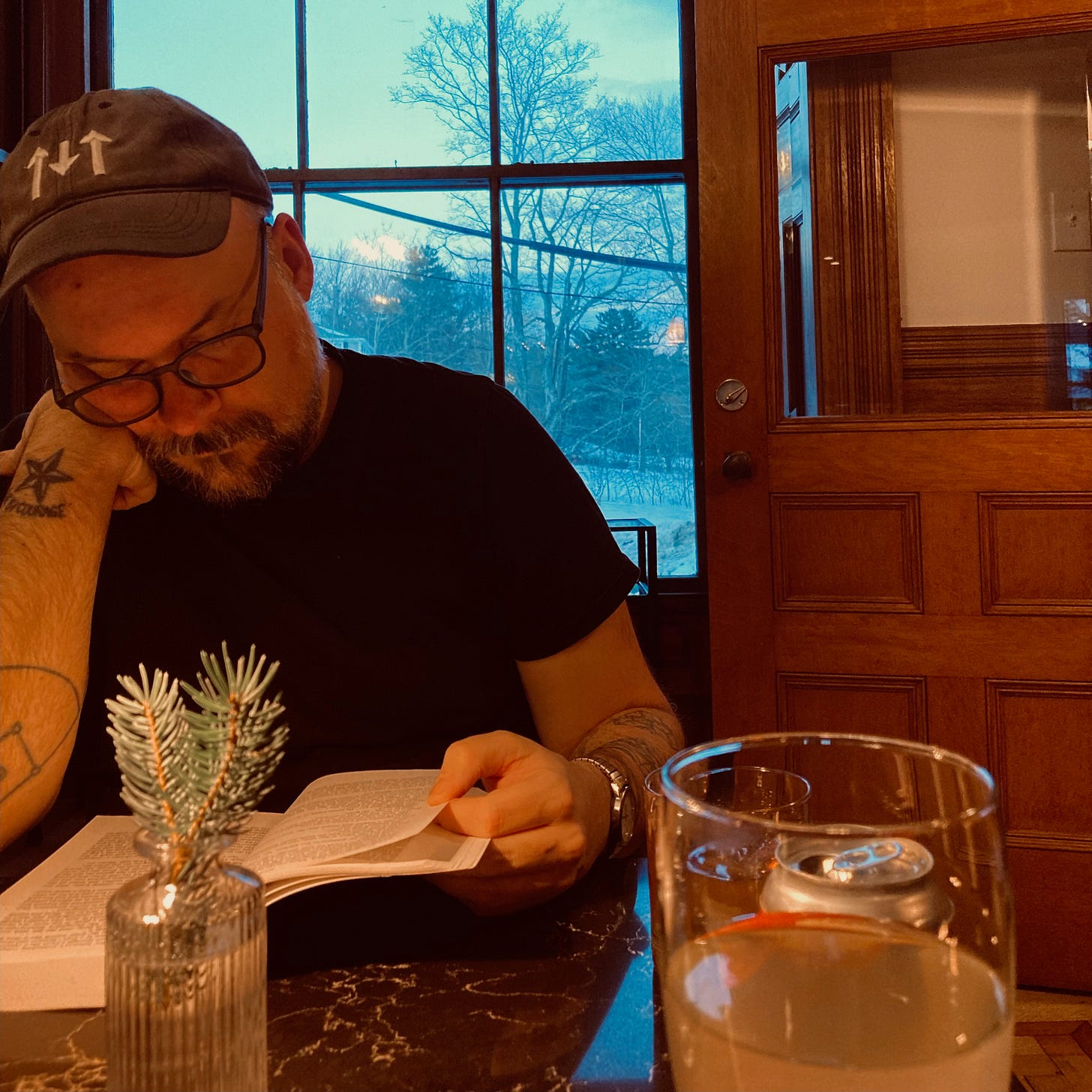A Road to Elsewhere
My Substack Endeavor, Why it Matters Not, and a Map Forward Sketched with Stolen Crayons
When I completed my Masters of Fine Art in Creative Writing at UMKC last December, I effectively removed myself from the relative pool of scribblers being asked, across the covers of Poets & Writers and endless social media posts, “Do you need to get an MFA?” Whether or not I needed an MFA, I now had one. This possession gave me a privileged perspective on the question and, more importantly, the tools to understand it better.
Now, almost three months out of the program and exiled from the nurturing walls of academia, I still want to live a Life of Letters. Building on this motivation and an interest in answering the previous question, I decided to start Reeding and Writing. If nothing else, this project will hold me accountable to my literary desires and give me an excuse to think and write about writing, at least once a week. I believe that there is some value to this for folks - and not just writers. Rhetoric, writing, and communication are more vital now than ever and we could all use a little help clarifying and understanding the voices of others. Also, who doesn’t like pretty stories?
What You Get
At its core, I believe when you pay for a graduate degree in creative writing that you are transacting money in exchange for four things: Accountability, Discipline, Insight, and Community.
Accountability - this is the responsibility from an outside source which makes you beholden to the work. Deadlines and the knowledge that someone is going to read what you write drives you to finish the draft. Turning over pages to someone else is tough, but invaluable and is a core to any MFA program. I am traditionally pretty bad at holding myself accountable to myself while being obnoxiously duty-bound to not let others down.
Discipline - Hand-in-hand with Accountability, the MFA program teaches you how to work with yourself to hit your goals and deadlines. One of the most important skills I aimed to learn when I went to UMKC was exactly where and how to fit writing into my days and how to craft a practice that worked for me and was productive. It is easy to not write. Thinking about writing is almost as daunting as actually putting pen to paper (or punching keys) and in both cases it just feels better to not worry about it and keep your stories, essays, or poems in your head. But discipline can be taught.
Insight - More than any of the others, this is where MFA programs shine. Having an accomplished, professional writer read your work and give you honest, constructive feedback is priceless. Outside of these programs, this is harder to find but it is not impossible. Insight comes in many forms and now, more than ever, it is easier to get your hands on through various Substacks, podcasts, and other online resources. It seems, at times, that writers prefer to write about craft against actual writing (as I stop here to awkwardly look into the camera).
Community - This is perhaps one of the more valuable commodities which you come away from a program possessing. The ability to email a handful of folks a copy of your work and ask them to read it is pure magic. Additionally, it is a delight to hear from someone who wants you to read something. These transactions are delightful and they keep me going. However, this one, more than the others, is an easy one to fudge outside campus connections.

So, Should You Get an MFA?
I can only answer obnoxiously. Do you have the ability to commit the time to a program? Are you in a financial situation which not only allows for that time but also allows for the commitment to the tuition? Will attendance not hinder other, more pressing aspects of your life? Then sure. You should absolutely go to graduate school for creative writing. But I don’t think it is absolutely necessary to grow as a writer.
Building a community and the discipline to hold yourself accountable and seeking out avenues for insight into your craft and craft in general is absolutely doable on your schedule and your budget. The returns will not be immediate or as quick as you could see from going through a program but they will be there. I feel that in the end it is all about developing a practice and keeping to that practice. Be diligent in your daily writing and reading and be an active part of a community of creators.
It is my hope that in addressing these elements of the MFA program throughout future posts that I will perpetuate that practice myself and hopefully encourage a few others along the way. Who knows, perhaps we will even form a community.






Ryan, I'm so glad you started writing on Substack so that not only I but others can 'Reed' your work. I'm enjoying the view into your thoughts and look forward to more. BTW, that's a beautiful door behind you in the last photo!